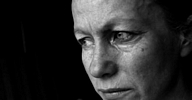|
|
 Acne (1,500) Acne (1,500)
 Addictions (1,500) Addictions (1,500)
 Advice (1,500) Advice (1,500)
 Allergies (1,092) Allergies (1,092)
 Alternative Medicine (1,500) Alternative Medicine (1,500)
 Anti Aging (1,500) Anti Aging (1,500)
 Breakup (1,500) Breakup (1,500)
 Cancer (1,499) Cancer (1,499)
 Dental Care (1,500) Dental Care (1,500)
 Disabilities (1,500) Disabilities (1,500)
 Divorce (1,500) Divorce (1,500)
 Elderly Care (1,498) Elderly Care (1,498)
 Goal Setting (1,500) Goal Setting (1,500)
 Hair Loss (1,500) Hair Loss (1,500)
 Health and Safety (1,497) Health and Safety (1,497)
 Hearing (1,500) Hearing (1,500)
 Law of Attraction (1,499) Law of Attraction (1,499)
 Marriage (1,500) Marriage (1,500)
 Medicine (1,497) Medicine (1,497)
 Meditation (1,499) Meditation (1,499)
 Men's Health (1,500) Men's Health (1,500)
 Mental Health (1,500) Mental Health (1,500)
 Motivational (1,500) Motivational (1,500)
 Nutrition (1,495) Nutrition (1,495)
 Personal Injury (1,499) Personal Injury (1,499)
 Plastic Surgeries (1,500) Plastic Surgeries (1,500)
 Pregnancy (1,496) Pregnancy (1,496)
 Psychology (1,500) Psychology (1,500)
 Public Speaking (1,500) Public Speaking (1,500)
 Quit Smoking (1,500) Quit Smoking (1,500)
 Religion (1,499) Religion (1,499)
 Self Help (1,500) Self Help (1,500)
 Skin Care (1,500) Skin Care (1,500)
 Sleep (1,500) Sleep (1,500)
 Stress Management (1,500) Stress Management (1,500)
 Teenagers (1,492) Teenagers (1,492)
 Time Management (1,500) Time Management (1,500)
 Weddings (1,500) Weddings (1,500)
 Wellness (1,500) Wellness (1,500)
 Women's Health (1,500) Women's Health (1,500)
 Women's Issues (1,500) Women's Issues (1,500)
|
One of the most uses of tea tree essential oil is in the treatment of skin disorders. Acne is a very common disease involving the sebaceous glands. It affects about 90% of men and women at some point during their lives.
In 1990, one of Australia's leading dermatologists carried out an acne study at the Royal Prince Alfred Hospital in Sydney comparing 5% benzoyl peroxide and 5% tea tree essential oil. Both agents performed equally as well in reducing the acne, with tea tree oil having a slightly slower effect. However, comparing the two agents, tea tree oil had significantly less side effects, suggesting more frequent application and higher concentration is possible.
People with acne tend to excrete more sebaceous lipids onto the surface of the skin than unaffected people. In combination with normally shed dead skin cells, this may lead to clogging of the pores. Bacterial (propionibacterium acnes) infection is another component of acne. A clogged hair follicle becomes a breeding ground for bacteria. This can result in redness and puss-filled bumps (the dreaded zit).
Topical treatment is difficult because the medicine needs to penetrate the skin in sufficient concentration, and be strong enough not to be inactivated by the presence of blood and puss. But it also has to be gentle enough to not cause irritation. Tea tree essential oil dissolves pus and kills bacteria, leaving the area clean and tissue undamaged.
Other interesting uses of tree tea oil:
- The tea tree has been used by the Bundjalung Aborigines in Australia for centuries to heal wounds, burns, and infections.
- The plant has antiseptic properties, as well as being a germicide, anti-fungal, anti-bacterial, immune-boosting, cleanser/disinfectant. Its oil is unusual in that it is effective against all three types of infectious organisms: bacteria, viruses and fungi.
- When applied to cuts, burns or bruises, it can lessen pain, speed healing and reduce inflammation.
- A few drops can be added to bath water to soothe tight muscles, and the warm steam can help to clear congestion from lungs and sinuses.
- Tea tree essential oil is widely used in massage by aromatherapists to boost the immune system.
- A one percent solution in laundry water kills dust mites which is a common cause of asthma in many people.
Tea tree is tolerated by most when applied directly without the use of a dilutant. Some individuals may be sensitive to tea tree, so always do a patch test before using anything new on your body.
Note: tea tree essential oil can be dangerous if swallowed. As little as 5 ml can be toxic to a small child, so it's important to keep it out of reach of children.
More information on tea tree can be found from the Australian Tea Tree Industry Association
Good sites for information on acne treatments:
https://
|
|
|



